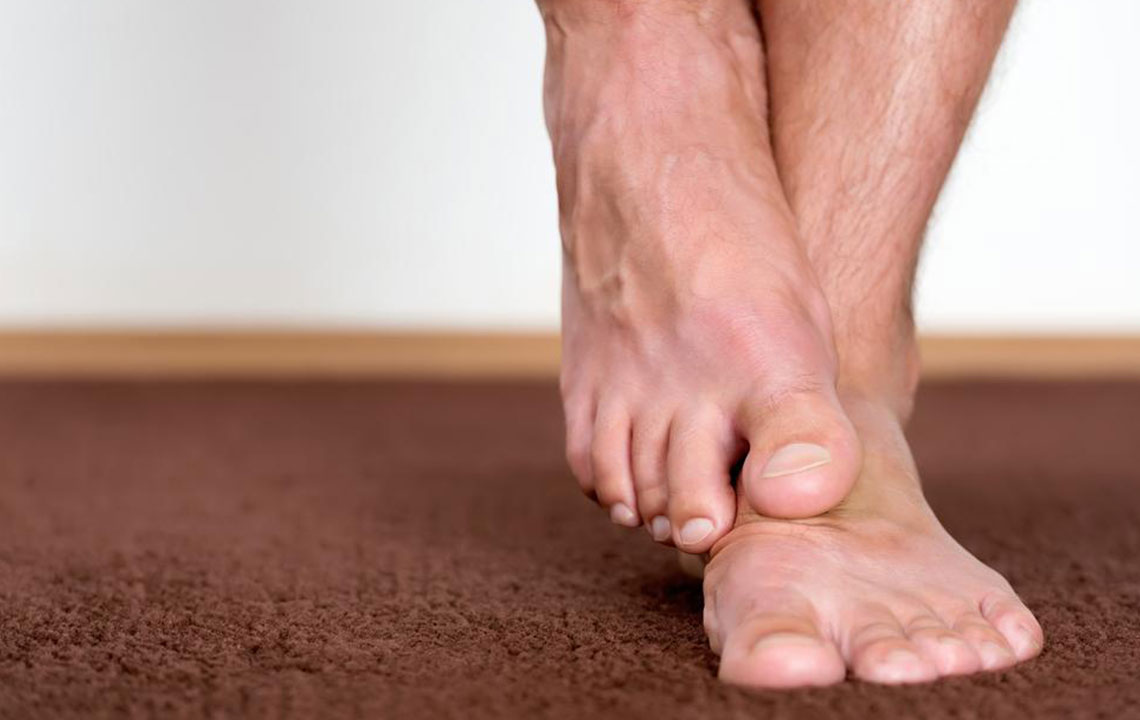Different Ways to Deal with Neuropathy in Feet
A lot of people experience a burning sensation in the feet; and a few them can be diagnosed with neuropathy, a kind of problem that is related to diabetes. It is compulsory for you to get your feet checked to get a proper treatment, so if you have a tingling and burning sensation in the feet, don’t ignore it.
Neuropathy in feet is caused by nerve damage in the legs and is characterized by a burning sensation. Among other causes, diabetes is the primary cause that causes neuropathy in feet. The nervous disease is difficult to prevent. However, with the advancement of medical sciences, the conditions can be kept under control.

Burning feet is the most common symptom of neuropathy in feet and is caused because of wrong signals sent to the brain by the damaged nerves. The damaged nerves get overactive and send false pain signals to the brain thus resulting in the burning sensation in the feet and nearby area.The condition may cause painful cramps, muscle twitching, emaciation, bone degeneration, changes in the skin, hair and nails, impaired coordination, numbness to touch, and vibration.
Neuropathy may be classified into two types depending on the number of nerves involved.
Causes of neuropathy
Diabetes is the most common cause of neuropathy in feet. Other conditions can cause neuropathy as well. Here are a few causes listed below.
- Uremia (chronic kidney disease)
- Deficiency of vitamin B12, folate, and vitamin B6 (rare cases)
- Hypothyroidism
- Alcohol
- Lyme disease
- HIV
- Amyloid polyneuropathy and chronic inflammatory demyelinating polyneuropathy (CIDP)
- Chemotherapy drugs
- Heavy metal poisoning
- Vasculitis (inflammation of blood vessels)
- Sarcoidosis
- Guillain-Barre syndrome (GBS)
Symptoms
A burning sensation in the feet is the most common symptom. Along with a burning sensation, you may also feel numbness in the feet. You may lose your ability to sense hot and cold. There might be increased pain, or sometimes you may lose the sensitivity to pain. Coordination loss, skin, hair, and nail changes are also symptoms of neuropathy in feet, among others.
A word on the diagnosis
In diabetic patients, a burning feet symptom is associated with neuropathy without any additional tests. A burning-feet sign in nondiabetic population needs to be diagnosed with the exact cause. Here are a few tests that are generally done to diagnose the problem.
- Electromyography
A probe or a needle is placed on the skin to check the function of the muscles. - Nerve conduction study
Tests the ability of the nerves to transmit pulses - Nerve Biopsy
In rare cases, a nerve tissue is examined under a microscope - Other tests
Blood, urine, and spinal fluid are tested to check several parameters
Treatment of neuropathy in feet
The disease cannot be cured completely. However, to control and manage the ‘burning feet syndrome’ is possible to some extent. The primary aim of the treatments is to prevent further damage to nerves. While in some cases, the treatments are to treat the cause of neuropathy, in other cases, the treatment would treat the symptoms. For example, in the case of diabetic neuropathy, the treatment is to keep the sugar levels under control. When this is done, the symptoms of neuropathy will decrease. However, in the case of small fiber neuropathy symptomatic treatment is provided.
- Provide an adequate diet to the patient suffering from the syndrome
- Supplement of B-complex vitamins, especially vitamin B12 and folic acid must be administered to the patient
- The diet should provide all the nutrients in adequate amounts. It should contain certain amount milk, eggs, meat, and fish as sources of proteins. Green leafy vegetables should be provided in abundance
- Drugs such as chemotherapy medications and medicines used to treat HIV cause damage to the peripheral nerves and hence they should be restricted to the patient or must be taken as prescribed by an expert
- Caffeine intake should be limited.
- Treatment of hypothyroidism.
- Reduce alcohol intake.
- Treat GBS and CIDP
Apart from these treatment options, there are a few common medications prescribed by doctors to treat the symptoms like amitriptyline, carbamazepine, duloxetine, pregabalin, topiramate, and venlafaxine. There are a few home remedies that the patient can follow.
- Massaging the foot regularly twice or thrice a day
- Soaking feet in lukewarm water
- Regular walking practice to enhance proper circulation of blood
- Wear shoes with soft soles
Conclusion
Maintenance of a good and healthy lifestyle can help a person get rid of neuropathy in feet. Nowadays, medical science is quite progressive and hence offers several treatment solutions to fight such health problems. Medical assistance from doctors and nurses must always be resorted to when the symptoms get severe. Regular care of your feet with some home remedies, physically active lifestyle and a healthy diet will go a long way in managing neuropathy in feet.

